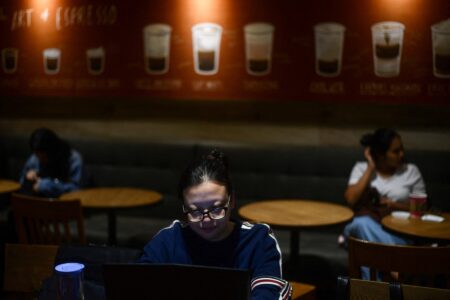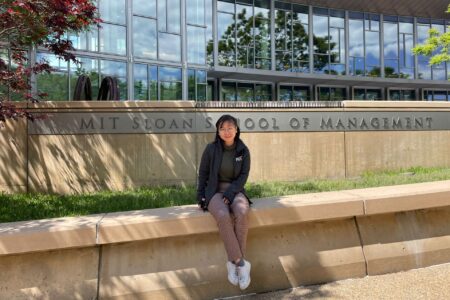
“Humanity’s unsustainable production and consumption practices are driving the planet towards destruction,” writes the United Nations (UN) on the page dedicated to the International Day of Zero Waste, observed every March 30 since 2023.
The solution to mitigating and reducing the damage we do to the planet sounds easy enough.
Consumers should shop more mindfully. Governments should reevaluate relevant regulations and policies. The private sector should opt for more sustainable business practices.
IBM defines sustainability in business as a company’s strategy and actions to reduce adverse environmental and social impacts resulting from business operations in a particular market.
It’s something many businesses are starting to focus on.
A 2022 report revealed the engagement of the Fortune Global Top 500 corporations with the UN’s Sustainable Development Goals (SDGs) based on publicly available information. It showed that while 304 of the 500 presented relevant content on their websites, only 32.6% of the corporations matched their usual business practices with relevant SDGs instead of implementing new initiatives.
Meanwhile, only 22.8% developed specific actions or strategies for specific SDGs.
Fast-forward to 2025, though, and the numbers must’ve grown – especially with the help of those learning from programmes that incorporate sustainable business practices into their curriculums, like at INSEAD.
4 of the many paths you can take to be a part of a sustainable business

Kok Leong Toh is the CEO of Formosa Solar Renewable Power Co., Ltd., a leading renewable energy company. Source: Toh Kok Leong via INSEAD
“Many business schools teach sustainability, but at INSEAD, it is embedded across disciplines,” says Kok Leong Toh, CEO of Formosa Solar Renewable Power Co., Ltd., a leading renewable energy company, and a graduate of the school’s Executive Master in Finance programme.
In Toh’s words, sustainability isn’t a subject at INSEAD – it’s a core principle – and that aligns perfectly with his values of doing work that creates a meaningful, positive impact.
Take his work building a solar farm on a former salt farm in Chiayi, Taiwan, for example.
Due to its historical use, the land was unsuitable for agriculture but had become a critical stopover for migratory birds – something local birdwatchers were determined to protect. One had even challenged Toh about the project, believing that it would harm the birds.
“I told him, ‘I share your concern, but I believe that proactive efforts toward coexistence are far more sustainable than avoiding challenges altogether,’” shares Toh. With that in mind, Toh’s team committed to tracking bird populations before, during, and after the project to ensure minimal impact. They even built an observation tower for birdwatching groups to monitor the migratory species.
The results? A solar farm that generates renewable energy and an increase in bird numbers, proving that projects like these, when done right, can integrate with local ecosystems rather than disrupt them.
“It reinforced a powerful lesson: sustainability and development are not mutually exclusive — they can, and must, go hand in hand,” says Toh.
It’s not always big undertakings that create the most impact or bring in the most rewards. Sometimes, it’s as simple as hosting students on those solar farms to inspire them to lead sustainable lives — and perhaps even pursue careers in renewable energy.
“As an individual, my influence is limited, but by mobilising capital into sustainability-focused projects and inspiring like-minded professionals, I can contribute to change at scale,” says Toh.

Anne Cathrine Garde is the Chief Investment Officer at the Natural Capital Group. Source: Anne Cathrine Garde via INSEAD
Like Toh, Anne Cathrine Garde is also in the INSEAD Executive Master in Finance programme. She believes that finance should be in service of both people and the planet too.
Her work? Leading nature-positive investments that protect biodiversity while delivering strong financial returns in Africa.
The Chief Investment Officer of Natural Capital isn’t new to spearheading sustainable business projects. One of her first was at PwC, where she took the lead in developing the company’s sustainability due diligence services for private equity, helping investors factor sustainability risks into their decisions. Another project led her to corporate finance and eventually to leading climate investments across Africa for a family office.
“Designing investment models that restore ecosystems and uplift communities isn’t just professionally fulfilling – it’s a personal calling that reflects the kind of future I want to help shape,” says Garde.

Himanshu Todwal is an MBA candidate at INSEAD and is the president of the school’s Energy Club, where they work on several initiatives in collaboration with global firms to explore the transition to net zero. Source: Himanshu Todwal via INSEAD
Himanshu Todwal echoes Garde’s sentiments.
“I want to be part of the solution that redefines how industries operate, from linear to circular, from extractive to regenerative,” says Todwal.
Having started his journey into sustainability during his time as the Strategy & Sustainability Lead at the Indian Oil Corporation, one of the largest energy companies in India, Todwal witnessed firsthand the environmental challenges posed by the traditional oil and gas industry. What started as a role in business transformation quickly evolved into leading projects focused on energy transition and sustainable logistics.
One of his most impactful projects at that point had been leading the optimisation of a digital toll and fuel management system across a 3,000-vehicle fleet. There, the team reduced paper-based processes and fuel waste, leading to 1.2 million Indian rupees in additional annual revenue and significantly lowering carbon emissions.
“I realised that sustainability is not just an environmental obligation; it is a strategic imperative,” says Todwal. Now, through rigorous coursework in INSEAD’s MBA programme and interaction with thought leaders from around the world, Todwal is certain that sustainability is a bridge between purpose and profitability that “when done right, it doesn’t just reduce harm, it creates value.”

Anni Kortesmaa is a Sustainable Client Solutions Associate at Goldman Sachs Asset Management. Source: Anni Kortesmaa via INSEAD
For Anni Kortesmaa, journeying into the world of sustainable businesses was a little different. With a background in energy and climate physics, she noticed that while technologies and solutions existed across themes of energy transition and broader sustainability, investment figures remained low and barriers to access remained high.
Wanting to understand the complexity of the challenge of scaling such solutions, Kortesmaa decided to pivot to the finance side to hopefully help mobilise capital towards key sectors of the transition. Her first step towards that was enrolling in INSEAD’s Master in Management programme.
“It was definitely a great junction between my prior academic experience on the climate and energy physics side and the business world,” says Kortesmaa. “The way INSEAD also operates is under the model of ‘business as a force for good,’ and I think that ethos very well prepared me for working in the field of sustainable finance.”
Today, Kortesmaa works as a Sustainable Client Solutions Associate at Goldman Sachs Asset Management (GSAM). There, she focuses on mobilising the full range of GSAM’s sustainability insights, advisory services, and investment solutions across client segments, within public investing and alternatives investing
“Via my career, I hope to contribute to mobilising capital towards scalable, impactful, and commercially viable solutions,” says Kortesmaa.
“The focus for me personally is non-concessionary forms of sustainable finance, in particular I want to be thinking how asset owners can find interesting and differentiated opportunities when investing in secular growth themes like climate transition.”
Her advice to those trying to navigate their own careers in sustainable business? Cultivate a good level of comfort with compromise and ambiguity and recognise that progress is frequently incremental rather than revolutionary.
“The field necessitates adaptability and a willingness to navigate complex, often conflicting priorities,” she says. “Embrace iterative solutions and maintain a pragmatic outlook, and understand that perfect solutions meeting demands of all stakeholders do not necessarily exist; but ensuring that the direction of travel is right is definitely possible.”










